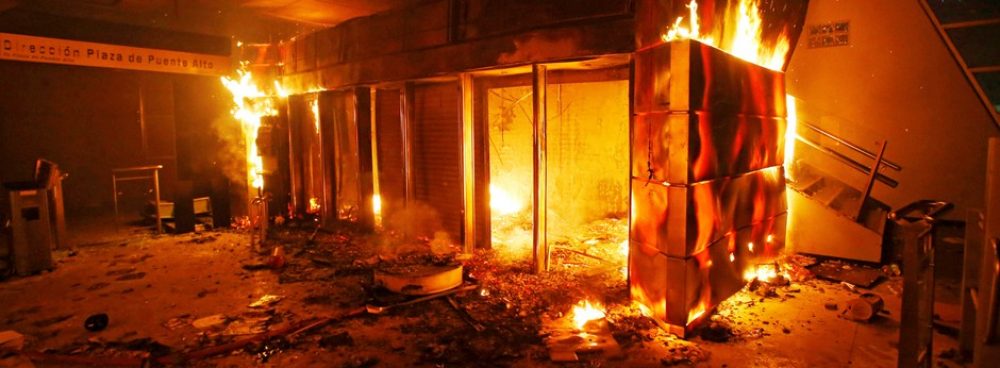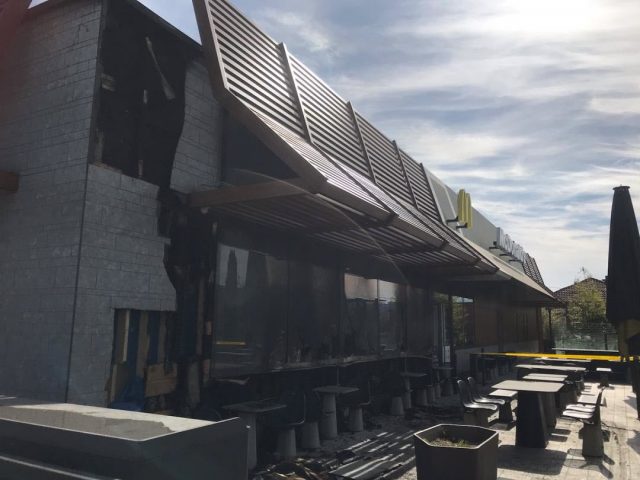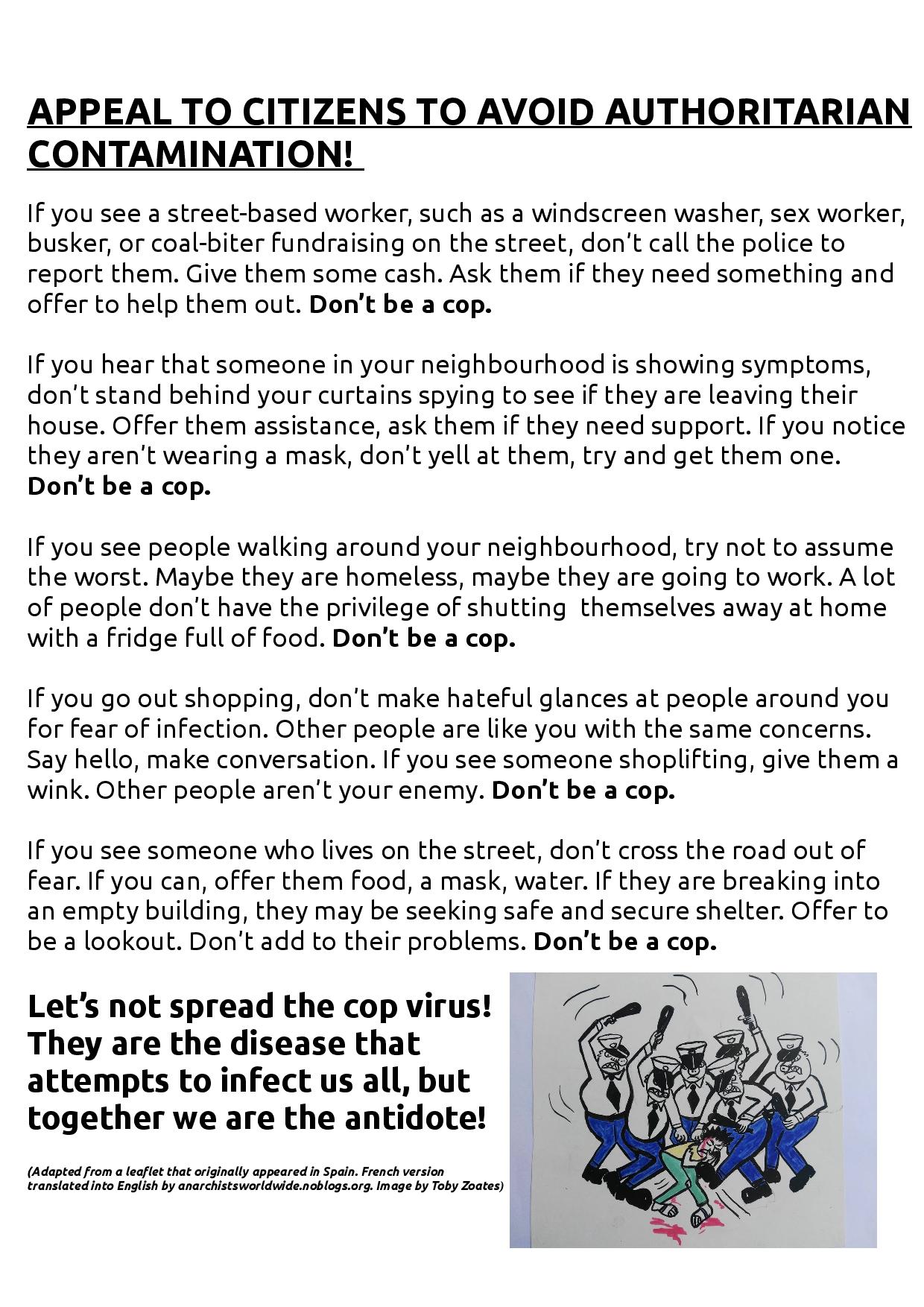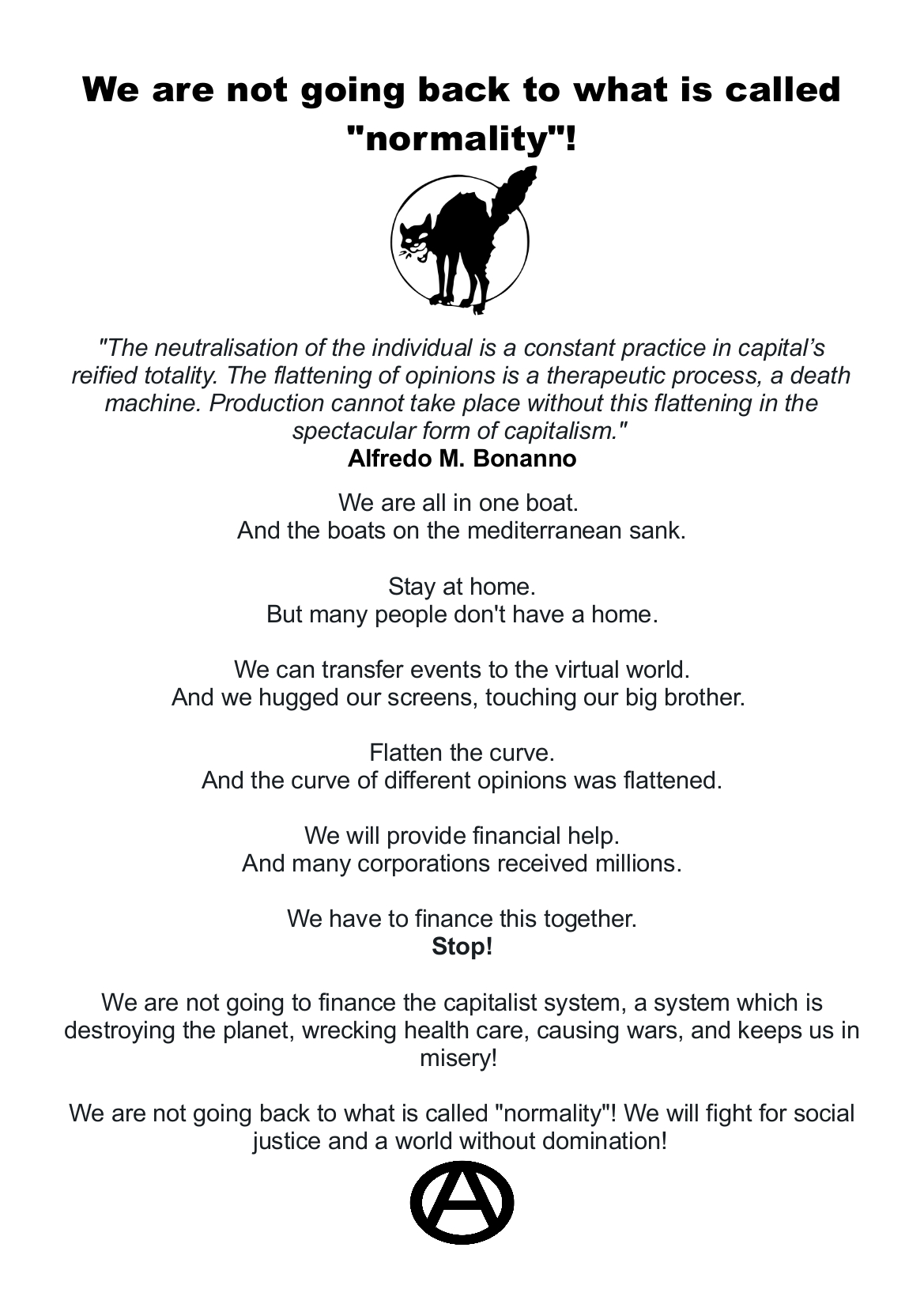Also included by the authors is a list of possible solutions for moving
toward a resumption of routine life as a way to confront the threat of
revolt. Among the proposals is a call to recruit thousands of young
people from a cross-section of the population to work at hospitals in
jobs that don’t require any complex training or to the police’s
volunteer Civil Guard for “community safety” work, such as visiting the
elderly on a daily basis, conducting nightly patrols, distributing food,
doing infrastructure work, and preserving public parks….In addition,
the document recommends that Home Front Command officers reinforce
efforts in underserved areas to reduce disparities. Another idea
proposed is using associations and aid organizations to help handle
people with “greater suspicion of the authorities.”
The document floats a demand to change the police’s approach toward
citizens, under the heading of “changing the consciousness level of law
enforcement.” It recommends changing the attitudes of the police and the
Public Security Ministry, under the slogan of “less ammunition, greater
compassion.” The writers cite a need “to break out of the enforcement
framework. For example, unarmed police can do house visits to elderly
people and see to the distribution of food and so forth., and entering a
framework of common work, with thousands of police handing out food
during Ramadan.”
Full article (the Haaretz website has a paywall):
What if People Rise Up Against Coronavirus Lockdowns? Israel Has a Plan
In document obtained by Haaretz, Israel’s National Security Council
charts a course of action if coronavirus restrictions lead to civil
unrest. They even propose a toast
Yaniv Kubovich
Apr 22, 2020 7:03 PM
A National Security Council committee handling the coronavirus pandemic
has debated the possibility of a popular revolt over growing economic,
psychological, and health problems.
In a document obtained by Haaretz, the panel describes a list of
possible triggers for unrest against law enforcement, and methods to
confront such unrest.
Representatives from the NSC and the military participated in the
discussion held two weeks ago that resulted in the document, as well as
a group of 30 figures from academic, defense, law enforcement, and
government circles.
The document they produced lays out two scenarios, a “popular revolt” or
“large-scale civil unrest,” and “a sense of distress that could lead to
public resentment or anger.”
The first scenario “bears potential to inflict long-range damage to
democracy and Israeli society,” according to the document. As for the
second option, it states that distress and anger alone “won’t cause
sweeping social effects, at least in the near term.”
The document lays out a list of possible causes for a revolt, based on
research conducted by the military’s Home Front Command in March,
including an online survey. In this poll, 88 percent of respondents said
the coronavirus crisis had affected their lives to a great extent or a
very great extent. Seventy-five percent said they leave their homes only
if they must, while 19 percent said they don’t leave their homes at all.
Other potential triggers for unrest include a sense that authorities
have lost control, a loss of confidence in the political system and a
loss of trust in those issuing orders on behalf of the authorities. The
authors also give great weight to economic hardship as a central factor,
especially people’s inability to pay rent, mortgages, and bills, or to
buy food – as well as fears, justified or not, of a food shortage.
They also cite a possible trend toward focusing on a “scapegoat” for the
crisis, such as the ultra-Orthodox, Arabs or foreigners; a feeling
within a specific population group that they’ve been neglected by the
authorities, such as those in protected housing; a drop in personal
security; and the potential for groups or individuals to take law into
their own hands.
For all these reasons, the document says, the public could act out
against state institutions in a way that could put “democracy and
Israeli society” at a long-term risk.
Food distribution in Deir al-Asad, April 2020. Food distribution in Deir
al-Asad, April 2020.Rami Shllush
“The entirety of living routines such as work, leisure, [and] social
life, have been broken off at once for the vast majority of the public,”
the document says.
It further states that the fact that “the end of the period of
uncertainty is unknown, and the public is exposed to assessments ranging
from a few weeks to many months to come” may affect the degree to which
the public adheres to instructions and the law.
The document acknowledges how at the first stage of the closure,
“consideration of the population’s comfort was sidestepped due to a need
to curb the outbreak.” Now, it says, “with the extension of time spent
in social isolation, attention and resources must be drawn to handle the
public’s distress.” It cautions that unless resources are budgeted for
citizens’ welfare, they may reach a point of popular revolt or uproar.
‘Less ammunition, greater compassion’
Also included by the authors is a list of possible solutions for moving
toward a resumption of routine life as a way to confront the threat of
revolt. Among the proposals is a call to recruit thousands of young
people from a cross-section of the population to work at hospitals in
jobs that don’t require any complex training or to the police’s
volunteer Civil Guard for “community safety” work, such as visiting the
elderly on a daily basis, conducting nightly patrols, distributing food,
doing infrastructure work, and preserving public parks.
Another suggestion is setting up “community emergency squads,” groups of
volunteers with basic emergency training, based on the format used in
communities along the Gaza border. The same kinds of groups could
operate in cities, where they would be assigned a building or a street,
says the document.. The authors also propose that the military work on
an awareness campaign to reduce public unrest. Also put forward is the
possibility of government ministries establishing a panel responsible
for public awareness and measuring public opinion, with the goal of
spreading a message of a shared responsibility among all segments of the
population.
Security forces enforcing regulations in Jerusalem, April 2020. Security
forces enforcing regulations in Jerusalem, April 2020.Ohad Zwigenberg
In addition, the document recommends that Home Front Command officers
reinforce efforts in underserved areas to reduce disparities. Another
ideat proposed is using associations and aid organizations to help
handle people with “greater suspicion of the authorities.”
The document floats a demand to change the police’s approach toward
citizens, under the heading of “changing the consciousness level of law
enforcement.” It recommends changing the attitudes of the police and the
Public Security Ministry, under the slogan of “less ammunition, greater
compassion.” The writers cite a need “to break out of the enforcement
framework. For example, unarmed police can do house visits to elderly
people and see to the distribution of food and so forth., and entering a
framework of common work, with thousands of police handing out food
during Ramadan.”
Holidays are cited as particularly sensitive, and the authors recommend
encouraging residents to mark these days symbolically within the limits
of instructions: “For example, all the neighbors going out onto the
balconies and toasting to the holiday; recruitment of artists and
celebrities to raise a feeling of community, like performances that can
be experienced from balconies (in the style of military troupes that
perform before soldiers in wartime); preserving morale among medical
teams and their families with packages sent by the public or the state;
performances at hospitals; and a YouTube channel like the one made by
firefighters during this year’s great blazes in Australia, on which
medical teams describe their experiences.
The ‘how are you’ program
With regard to a situation in which the public does not engage in a
popular revolt but rather shows “resentment,” as described by the
document, the authors recommend handling things on an individual basis.
The factors likely to create such a problem, the document says, are
“loneliness, especially among the elderly and isolated; families and
individuals at risk who have lost their permanent frameworks – boarding
school pupils sent back to dysfunctional homes, women at risk, pupils in
special education programs, the disabled, trauma victims and victims of
other psychological disorders; a loss of emotional support resources
such as a religious or secular community, religious framework or
meetings with friends.”
The document points to other factors as well, such as “gaps between
local/city authorities working well and those that are weaker, which
worsen in time of crisis; personal health concerns that have nothing to
do with corona[virus]; families, especially in urban settings, deprived
of the ability to breathe in a little air, to enjoy some quiet and some
private space; the loss of sources of leisure – nature walks,
entertainment, sports,” and the lack of access to information.
Among the ideas suggested to overcome these are increasing leisure time
as one of the plans for exiting the closure, access to psychological
counseling by video via the health maintenance organizations, and
short-term couples and family therapy. The authors also mention a
program called “How Are You?:” “The main focus of this program is about
establishing a framework for Zoom meetings with diverse population and
geographic groups.”
In addition, the document recommends operating preschool frameworks once
a week and organizing hikes with parents and teachers in a nature
reserve with clear instructions and supervision.
The council’s team also said during their discussion that since the
crisis is neither specifically “Jewish” nor “Zionist,” it creates a
sense of common identity for “all segments of Israeli society,” and that
they saw this as an opportunity for these groups to grow closer.
“The required tasks are civilian ones in principle and this permits
active participation and belonging on the part of all segments of
Israeli society,” the document says.
The NSC said of the document that “this is an appendix to part of a
document containing recommendations presented to the National Security
Council by a team of experts headed by Prof. Eli Waxman. During the
discussions, several programs drawn up by a number of expert teams were
presented.”




